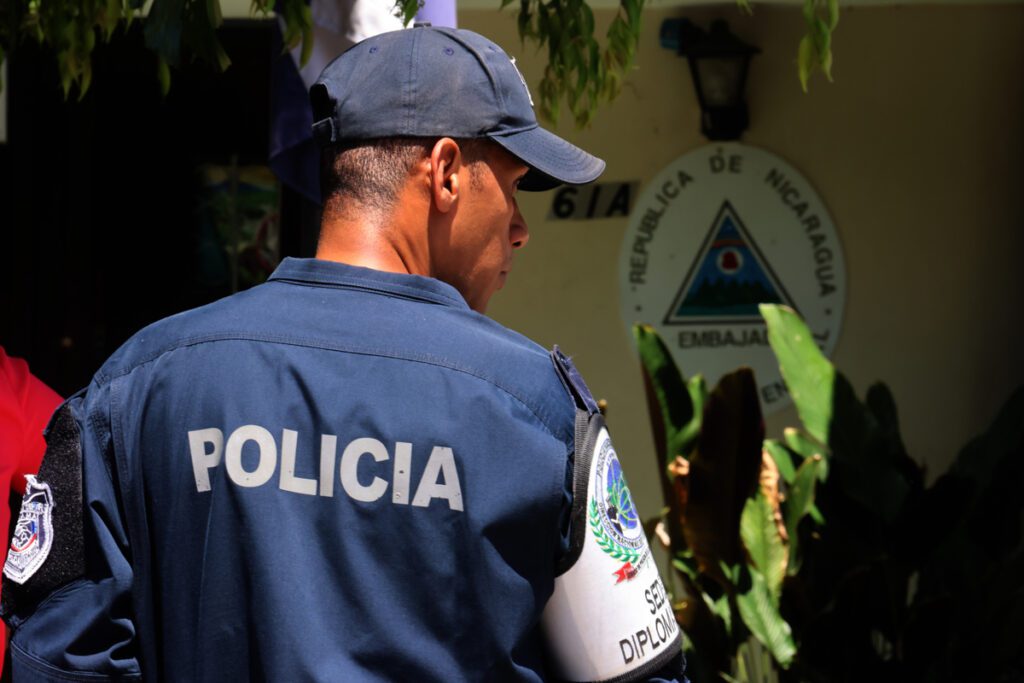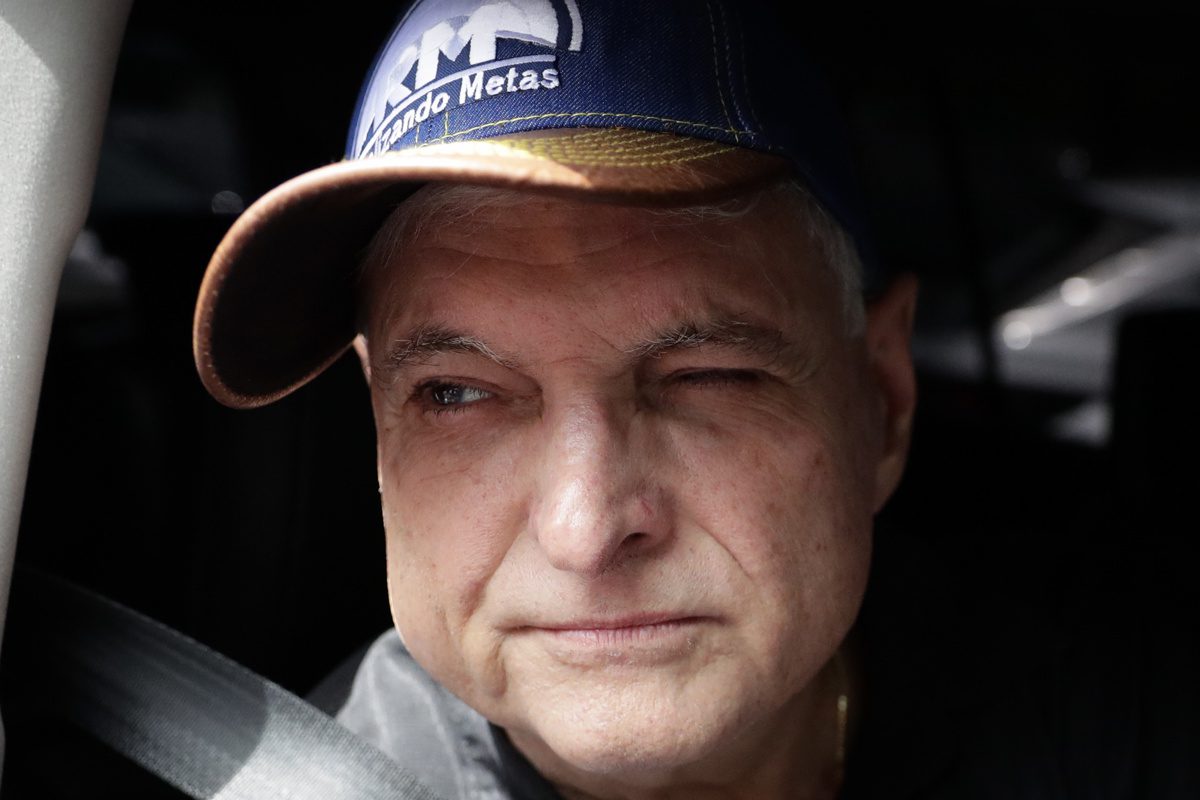Ricardo Martinelli, former president of Panama (2009-2014), “requested asylum in the Embassy of the Republic of Nicaragua in Panama, for believing himself persecuted for political reasons and being at risk”, says a note sent by the Foreign Ministry of Managua to Panama, which adds that the Government of Daniel Ortega decided to grant it to him.
The Panamanian right-wing ex-president had launched on Saturday his campaign for the May 5 presidential elections, a day after the Supreme Court of Justice published the ruling rejecting his last judicial appeal to annul his prison sentence.
Following the court’s ruling, the Electoral Tribunal must formalize his exclusion from the electoral race.
Martinelli, 71, was sentenced in July 2023 to 128 months in prison and to pay a fine of US$19 million upon conviction for money laundering.
According to the Ortega regime, Martinelli requested asylum in the Nicaraguan Embassy in Panama, in charge of Consuelo Sandoval. According to the statement sent by the regime, the Panamanian government was requested to “provide the necessary assurances for the prompt departure and humanitarian transfer of the asylum seeker” to Nicaragua.
The New Business case
The New Business case, which involves the former Panamanian president, began in 2017 and is related to the purchase of Editorial Panamá América S.A. (Epasa) with alleged public funds for $43.91 million in December 2010, when Martinelli was president.
During the hearing it became clear that the beneficiary of 60% of Epasa’s shares was the former president and 40% was Henry Mizrachi, who agreed a plea bargain with the Public Prosecutor’s Office, which implied the return of part of those resources to the State.
The hearing for the New Business case was based on the opening of a criminal case on December 9, 2022 by Judge Marquínez.
The investigation consists of 164 volumes and according to the Panamanian Prosecutor’s Office, the payments were made by companies, which in turn received contracts for different infrastructure works, which were executed in the period 2009-2014.
The first instance ruling was ratified in October 2023 by an appeals court, after which Martinelli filed a final appeal to try to overturn the sentence.
Since then, the former president and owner of a supermarket chain, filed a series of appeals, in an apparent attempt to delay the final ruling of the Supreme Court until after the elections, but all of them were rejected.
Martinelli, who believes himself to be politically persecuted and who managed to walk away unscathed from two trials for the alleged illegal interception of communications of 150 people during his term of office (the case known as “Pinchazos”), did not have the same luck this time.
As of Friday, February 9, the conviction for the New Business case became final, and Martinelli’s arrest could be ordered.
His presidential candidacy

Martinelli was nominated by the political parties Realizando Metas and Alianza to the general elections of May 5, 2024.
Last Monday he attended a meeting of the State Commission for Justice. There, he said he was “concerned” about justice in Panama. “There is no justice, justice is useless. They receive orders from the Executive and other people (…)”, expressed Martinelli that day, surrounded by José Raúl Mulino, the vice-presidential candidate, who must now assume the presidential candidacy; and his spokesman Luis Eduardo Camacho. Meanwhile, on Tuesday he went to the National Assembly with his team of lawyers to denounce Panamanian President Laurentino Cortizo, for allegedly trying to kill him.
Martinelli described the Supreme Court ruling as a “wild and illegal last minute move” to take him out of the electoral race, by means of a resolution issued by ” trashy magistrates”.
Furthermore, he asked his followers to support his running mate José Raúl Mulino, if he is finally disqualified, as presidential candidate by the Electoral Tribunal. Mulino was the Minister of Public Security during Martinelli’s administration.
The presidential candidates in the race are former president Martín Torrijos (2004-2009) for the Popular Party (PP), current vice-president José Gabriel Carrizo for the Democratic Revolutionary Party (PRD), Rómulo Roux for the alliance of Democratic Change (CD) and the Panameñista Party (PPa), Ricardo Lombana for the Moca party and independent candidates Melitón Arrocha, Maribel Gordón and Zulay Rodríguez.
Nicaragua: a paradise for ex-presidents fugitives from justice
Ricardo Martinelli would not be the first former president fugitive from justice to seek refuge in Nicaragua.
Mauricio Funes, former Salvadoran president, sought refuge in Nicaragua in 2016, where he has the protection of Daniel Ortega, who granted him Nicaraguan nationality in July 2019. The Salvadoran justice system sentenced former President Mauricio Funes to 14 years in prison for having negotiated a truce with gangs during his term in office (2009-2014).
Along with the former president, David Munguía Payés, former Minister of Justice and Security, was also sentenced to 18 years in prison, according to the Attorney General’s Office (FGR).
“The former officials allowed the gangs to strengthen themselves economically and in territory, in exchange for reducing the homicide rate between 2011 and 2013, in order to benefit the government in office and favor it in the elections,” the FGR stated in May 2023.
In a second sentence, Funes was sentenced to six years in prison for tax evasion. According to the Attorney General’s Office, the former president did not declare income in 2014 for about $271,000, and thus evaded paying taxes of just over $85,000.
Another in the list of refugees by the Ortega dictatorship is former Salvadoran president Salvador Sánchez Cerén, who left his country through the land border in December 2020. On July 28, 2021, the 2nd Peace Court of San Salvador issued an international search and arrest warrant for the former president of El Salvador between 2014 and 2019.
Salvador Sánchez Cerén and nine other former officials are accused of corruption for crimes that occurred between 2009 and 2014. The Farabundo Martí National Liberation Front (FMLN) party called the investigations “political persecution”.
A few days after the arrest warrant was issued, on July 30, 2021, the authorities of the Central American country granted Nicaraguan nationality to the former president of El Salvador, Salvador Sánchez Cerén and his family.





